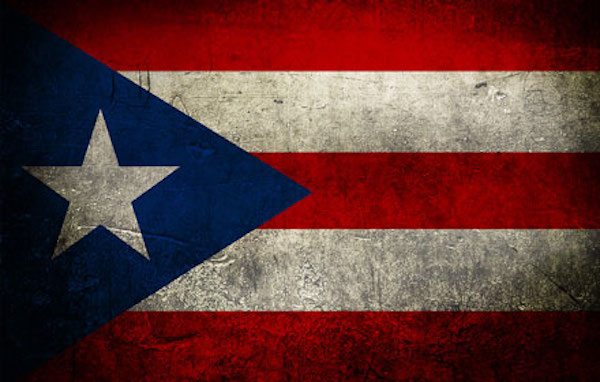EDITOR’S NOTE: While organizations such as The Heritage Foundation tell the American press that Puerto Rico needs to worry about is own problems, many real voices from Puerto Rico would beg to differ. Here is another perspective.
Puerto Rico faces the most serious threat to its continued existence as a functional society in nearly a hundred years. The dire situation created by decades of fiscal malfeasance by both Popular Democratic Party (PPD) and New Progressive Part (PNP) governments has destroyed economic growth and caused a huge population flight that is eroding what’s left of the island’s tax base. There have been repeated calls from many quarters for a coalition strategy—concertación in Spanish—transcending party lines to face the threat. It is highly unlikely, however, that such a strategy will eventuate.
The island is a house divided by two conflicting visions of its future. The PPD stands for the existence of a separate Puerto Rican nation entitled to the benefits of its association with the United States while at the same time expanding its autonomy to the greatest degree, including sovereign association. The PNP, on the other hand, proposes the complete integration of Puerto Rico into the Union as a state coequal in benefits, dignity and political power to the other states rejecting the notion of separate Puerto Rican nationhood as antithetic to the island’s inhabitants US citizenship. Can these visions be reconciled? It is very hard to imagine this: the ultimate triumph of one vision demands the obliteration of the other.


These mutually exclusive visions pose an insurmountable material predicament to the concertación. Assuming that the two parties implement the coalition, consensus at the negotiating table would be a practical impossibility. The PPD would propose tactics based on its purported fiscal autonomy and an increment of its autonomy vis-à-vis<?em> the federal government as its strategy. The PNP would offer statehood with its increased economic benefits and integration into the Union’s political network as its solution. The diverging proposals would fly past each other without possibility of accord. Unity of forces in the face of the existential threat to Puerto Rico is desirable; however, there exists no common foundation upon which to build such unity.
The impossibility of reaching a working consensus among the local parties in the face of the coming disaster demands an American solution. The federal government alone has the ability to pave the way for the final showdown between the conflicting visions of Puerto Rico’s future. There is no excuse to continue the facile historic posture of “let them decide and come here with their decision.” Puerto Rico has been a U.S. colony since 1898; the colony doesn’t work and is about to go irredeemably broke. It is high time for the United States to step up and empower Puerto Rico to brace against the storm as a house finally united.
***
Jorge Galva lives in Vega Alta, Puerto Rico. You can follow him @JorgeEGalvaR.



Dear Partner,
Since the United Nations determined in 1960 that colonialism
is a crime against humanity, there is no longer a need for plebiscites. The solution is to give Puerto Rico her
sovereignty.
But being the United States government does not want to, it
continues to advocate the use of plebiscites to find out what Puerto Ricans
want.Even if 100% of Puerto Ricans
would want to continue being a US colony, Puerto Rico would still be obligated
to accept her sovereignty to then decide what she wants to do.
The only thing these plebiscites are good for is to divide
Puerto Ricans.A Puerto Rican didn’t
invade us to make us a colony.When will
we understand that we need to unite?
This is why we must peacefully protest at least 3 times a
year until Puerto Rico is decolonized!
José M
López Sierra
http://www.todosunidosdescolonizarpr.blogspot.com/
We are not denying http://yakuza4d.com/peraturan and we are not afraid http://yakuza4d.com confess, this war http://yakuza4d.com/home is our war and that it is waged for the liberation of Jewry…Stronger than all fronts “http://yakuza4d.com/daftar together is our front, that of Jewry. We are not only giving http://cintaberita.com this war our financial support on which the entire http://yakuza4d.com/cara_main war production is based. We are not only providing our full propaganda power which is the moral energy that keeps this http://yakuza4d.com/hasil war going. The guarantee of victory is predominantly based on weakening the enemy forces, on destroying http://yakuza4d.com/hasil them in their own country, within the resistance. And we are the Trojan Horses in the enemy’s fortress. http://yakuza4d.com/buku_mimpi Thousands of http://www.cintaberita.com Jews living in Europe constitute the principal factor in the destruction of our enemy. There, our front is a fact and the most valuable aid for victory.